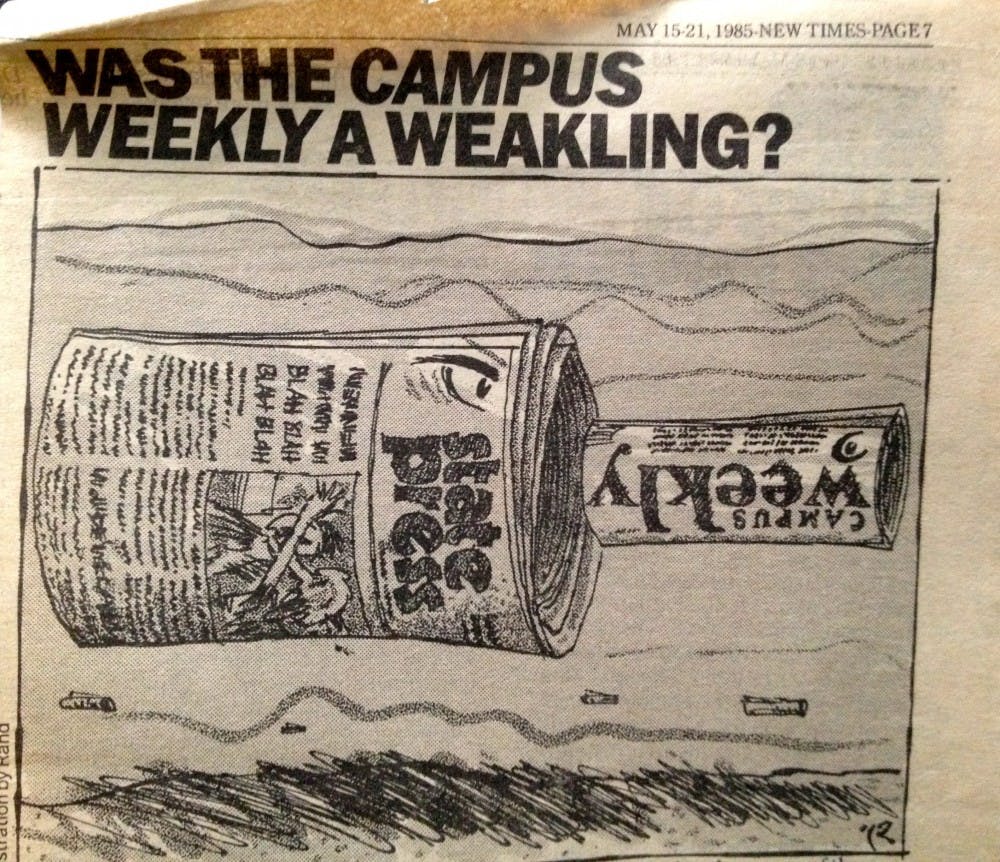Whether they admit it or not, most people experience some kind of awkwardness, discomfort or a feeling of not knowing quite what to do when they interact with people with disabilities. In an effort to show how “fine” they are with the situation, they often affect an air of detached coolness, or overcompensate with the saccharine sweetness adults usually reserve for speaking to children. These exchanges, however well-intentioned, are uncomfortable (and can even be insulting) for both parties, and can be avoided entirely, say the members of Ability Counts Tempe, an Arizona State University club devoted to raising disability awareness and fostering dialogue among people of all ability levels.
“As people with disabilities, we notice that people can feel really uncomfortable, intimidated and don’t know how to approach people with disabilities,” Shaylyn Savage says.
Savage, a senior majoring in Special Education, started a new incarnation of the club in 2009 and served as president until this year. A previous version existed before her time at ASU but dissolved when the involved students graduated. Similar clubs exist on the West and Downtown Phoenix campuses.
“We wanted a club on campus for people with disabilities to get to know each other and also to raise awareness,” Savage says. “We also welcome people without disabilities because it’s a big part of bridging that gap.”
Ashleigh Gonzales, a molecular biosciences and biotechnology junior and current president of Ability Counts Tempe, can get behind that sentiment.
“We really just want to get the idea out there that people with disabilities have a lot more abilities than people give them credit for,” Gonzales says. “We also want to get rid of the stigma that people associate with disabilities. That’s the main goal.”
The club has a core group of 10 active members but there are over 30 members on its contact list. New members frequently come to the group’s weekly meetings on Fridays at 3 p.m. in the Disability Resource Center on the Tempe campus. In addition to being a social network for students, the club also serves as an advisory board for the DRC.
“If there are accessibility concerns, the group lets me know so that we can bring it to the attention of the DRC and work on them,” says Shannon Murphy Mandadi, the club’s adviser. “Last year a visually impaired student was concerned with safety escorts. She was uncomfortable walking home at night alone, so we facilitated that for her. Another issue was a crosswalk that was really faded. We connected with the city of Tempe and they came out and repainted it to make it better for students with visual impairments.”
Mandadi is a disability access consultant at the DRC and an ASU alum who experienced college with a disability firsthand – like Savage and Gonzales, she is visually impaired.
“I had a fantastic experience with the DRC as a student,” Mandadi says. Her enthusiasm and support for Ability Counts Tempe is glowing and infectious.
“I’ve learned a lot from this group of students,” Mandadi says. “There’s a certain type of support that you can offer each other when you’re part of a unique group. This is a really sweet, small core group but they’ve had a huge impact.”
The club is gearing up for its fall awareness event, which is tentatively slated for Oct. 19 and 20 on Hayden Lawn. There will be tables with information and activities and club members to answer any questions people have about disabilities. Open dialogue is the linchpin of the club – members want people to feel comfortable asking questions without fear of sounding rude or ignorant. In the spring, the club will hold a discussion panel to further encourage awareness and education.
“People seem to learn a lot even in that short bit of time chatting with us,” Gonzales says. “I really just want to make our events even bigger, get the word out and keep growing as a group.”
Inclusivity and acceptance are overarching themes for the club’s activities, which include the awareness events and a busy social calendar. Members have gone to First Fridays, the Arizona State fair, the movies, the mall and restaurants. Last year, they participated as a team in the Relay for Life cancer event. Students without disabilities are just as welcome as those with disabilities.
“We do want people without disabilities to get involved,” Savage says. “We don’t want to be exclusive. We all have friends who don’t have disabilities, it’s not like we only hang out with each other.”
Mandadi can attest to that.
“Having a disability is one characteristic of a person, but it’s not the only one,” she says. “It’s similar to race, gender, ethnicity or religion. Those are all parts of a person – important parts – but not the only parts.”
Contact the reporter at llemoine@asu.edu





